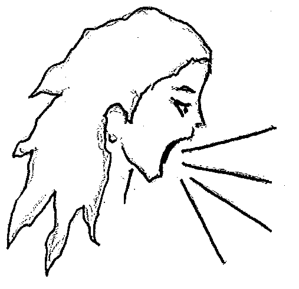

Module 5 - Mood Disorders
Hypomania and Mania
Hypomania and mania can be considered as the opposite mood state to depression and is diagnosed when a person’s mood is high rather than low. Hypomania is the less severe form and if there are psychotic symptoms or the person is very badly affected the episode is called a manic episode. People who have episodes of hypomania and mania also get depression and for this reason the illness is called bipolar affective disorder (only a minority of people who get depression have manic episodes)Clinical Features of Hypomania & Mania
In these disorders an individual’s mood is elevated or irritable, they are often overactive, they sleep less, become grandiose, talk fast and their thoughts might jump from subject to subject. Psychotic symptoms do not occur in hypomania and if present may indicate a manic episode. When psychotic symptoms do occur they tend to be congruent with the person’s elevated mood and therefore may have grandiose themes. The person may believe that they have a job, a famous partner or be chosen by god. They may hear voices talking to them which tell them they are good, clever or special. People with mania are often at increased risk because they feel abnormally good, are full of energy and are disinhibited in their behaviour, leading to reckless behaviour in the community. A person with mania may be flirtatious or overtly sexual in speech and behaviour and may believe they are extremely clever or talented. There may be arguments with carers about money and the person may spend money on things that are not required. The person may talk a lot and laugh a lot - often inappropriately and uncontrollably. There is also the risk of physical breakdown due to the reduced sleep, overactivity, reduced oral intake and failure to take medication. The following symptoms may be evident: • Overactivity or excessive energy, • Increased talkativeness (or vocalisation) and pressured speech, • Flight of ideas, • Disinhibition in social and sexual behaviour, • Decreased sleep, • Grandiosity or inflated self-esteem, • Reduced concentration, distractibility, • Reckless behaviour, and • Increased libido and sexual behaviours.














